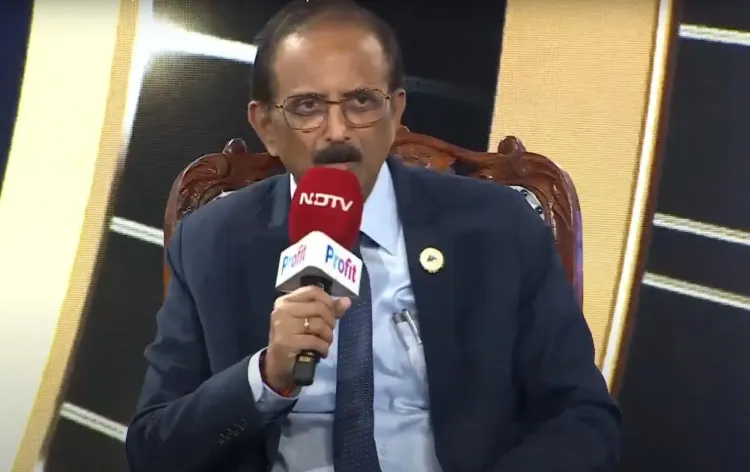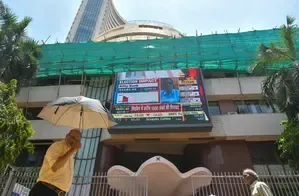Reforms and Recapitalisation Have Benefited Public Sector Banks: SBI Chairman

Synopsis
Key Takeaways
- Recent reforms and recapitalisation have positively impacted public sector banks.
- Depositors are diversifying their asset allocations.
- Capital is crucial for achieving Viksit Bharat.
- PSBs are adopting a balanced loan portfolio approach.
- Deepening the bond market is essential for economic growth.
Mumbai, Feb 18 (NationPress) - According to C.S. Setty, Chairman of State Bank of India (SBI), recent recapitalisation and reforms have significantly improved the state of public sector banks, resulting in cleaner balance sheets.
During the NDTV Profit Conclave, he noted a shift in saving behaviors, with depositors now diversifying their asset allocations.
Setty emphasized the importance of capital for realizing the vision of a developed India (Viksit Bharat) and advocated for exploring various debt capital sources beyond conventional bank loans.
He stated, "The trust element has always existed, and public sector banks (PSBs) have maintained a strong level of trust among depositors. What has changed recently is that recognition, recapitalisation, and reforms have truly benefited public sector banks," he articulated.
Setty further pointed out that the balance sheets of these banks are indeed cleaner now.
"From the previous cycle, we've garnered insights on effectively utilizing the substantial data available for loan underwriting," he remarked.
Historically, PSU banks have been primarily wholesale lenders; however, they are now embracing a balanced approach encompassing retail, agriculture, MSME, and corporate loans, which leads to more balanced loan portfolios.
Setty identified capital as a vital element for the Viksit Bharat blueprint's success.
"Currently, a significant portion of debt capital is sourced from bank loans. There is a notable transformation in saving patterns, with depositors now engaging in diversified asset allocation," he added.
He emphasized the necessity of strengthening the bond market and harnessing capital from mutual funds, insurance, and pension funds to aim for a $35 trillion economy by 2047.
The country's largest public sector lender reported a remarkable 84.32% year-on-year increase in net profit, reaching Rs 16,891 crore for the October-December quarter (Q3 FY25), up from Rs 9,164 crore in the same period last year. This profit surge was driven by enhanced core income.
The net interest income (NII), or core income, grew 4.09% from the previous year, amounting to Rs 41,445.5 crore compared to Rs 39,816 crore, as reported in the bank's stock exchange filing.
The gross NPA ratio improved to 2.07% as of December 31, 2024, down from 2.13% in the September quarter. Sequentially, the net NPA ratio remained stable at 0.53% as of December 31, 2024.










